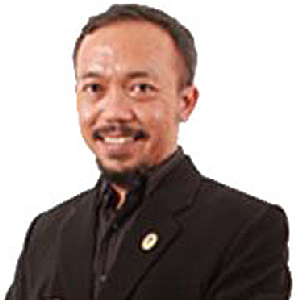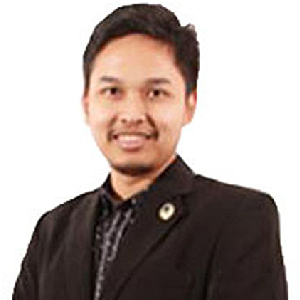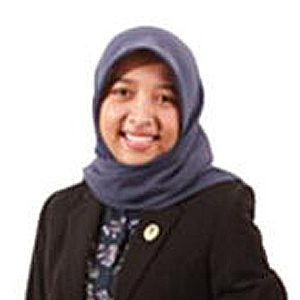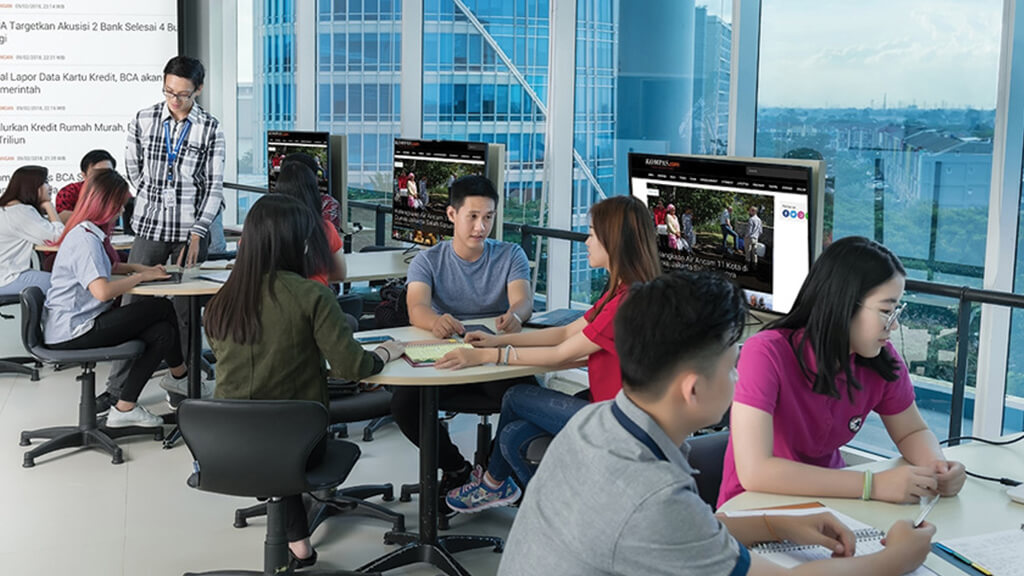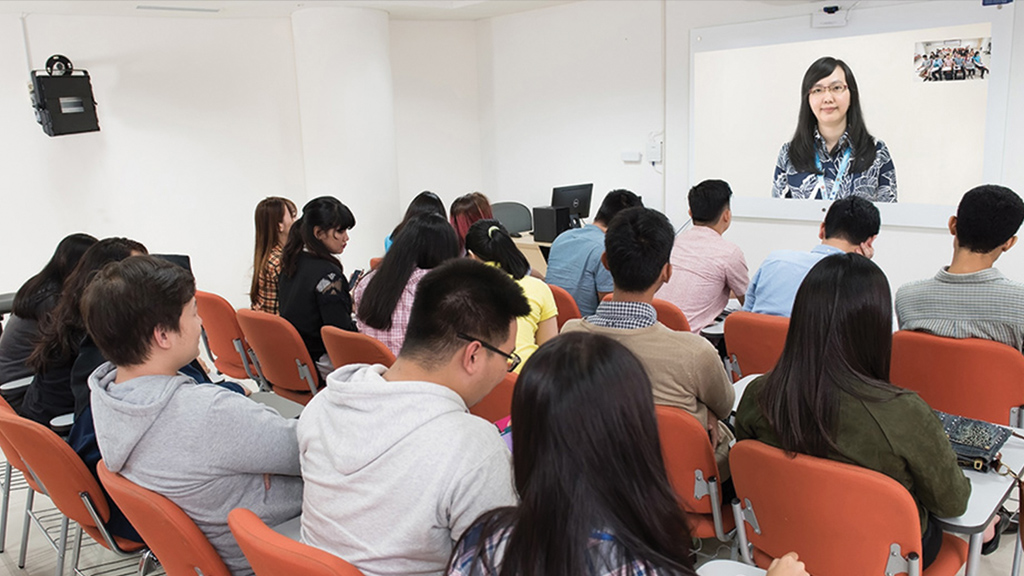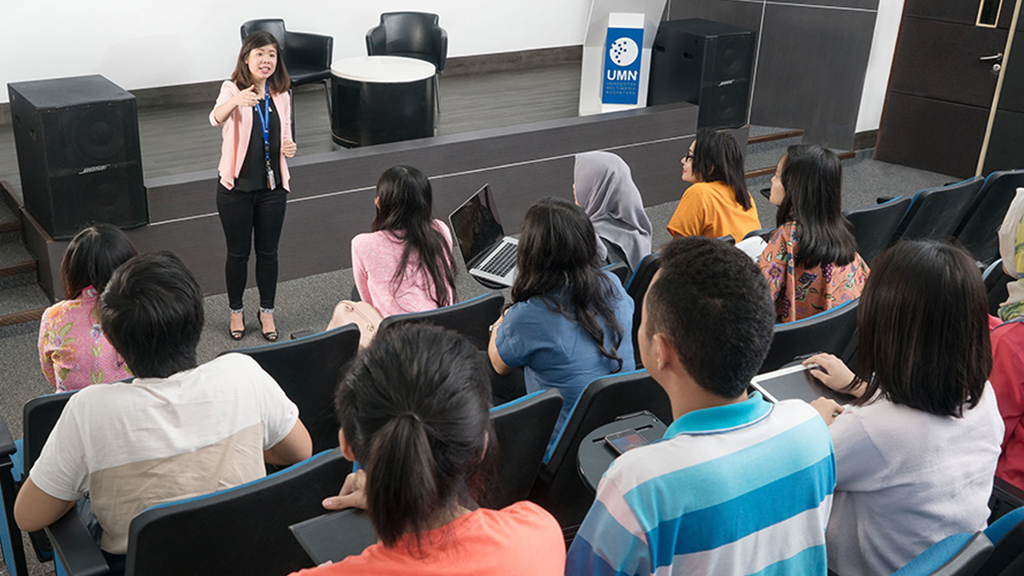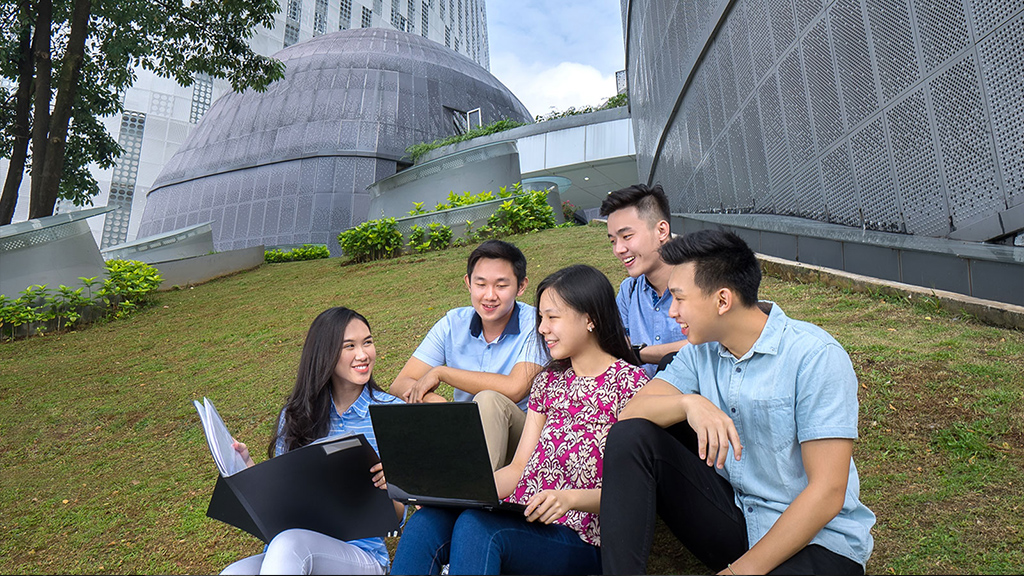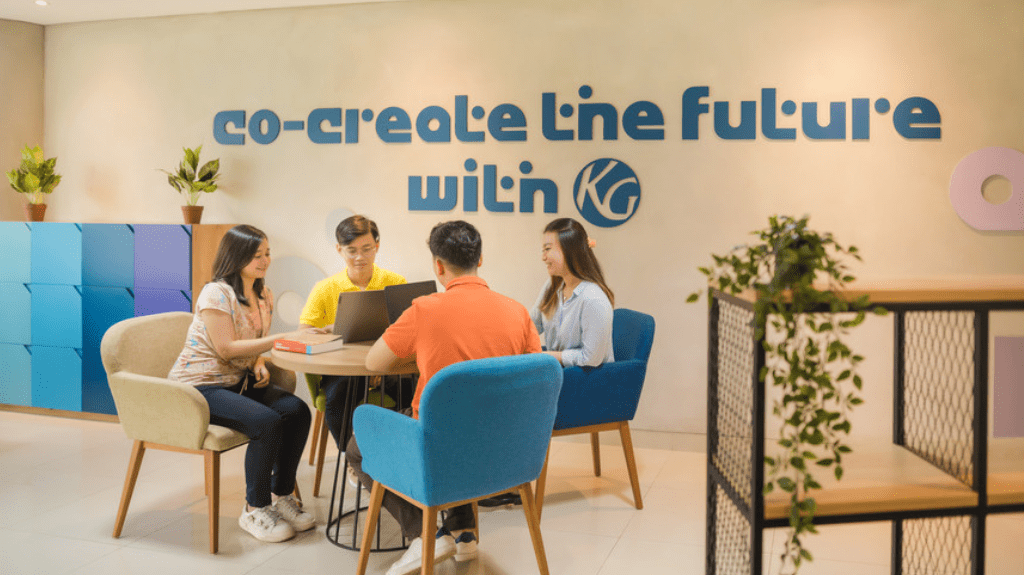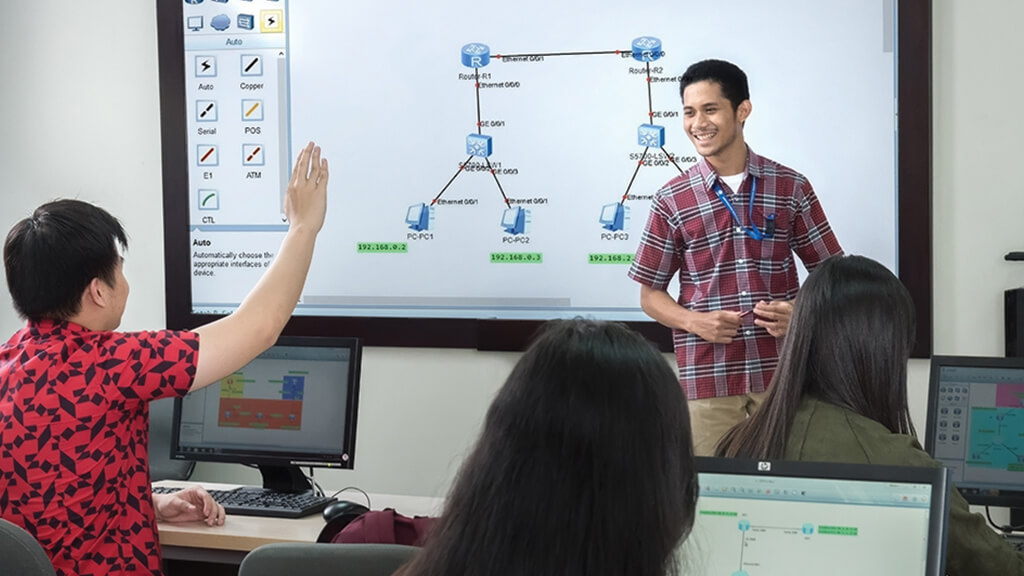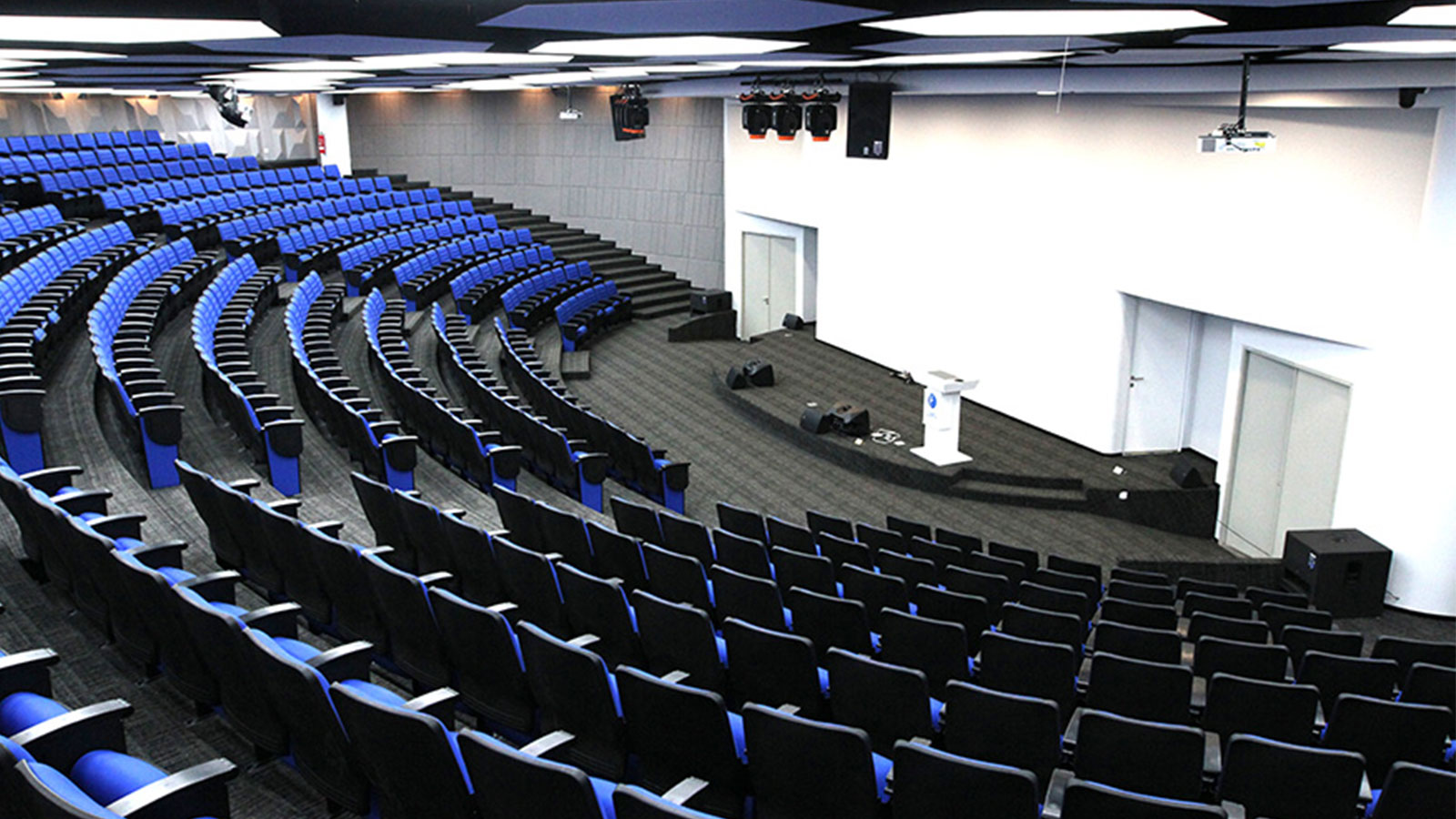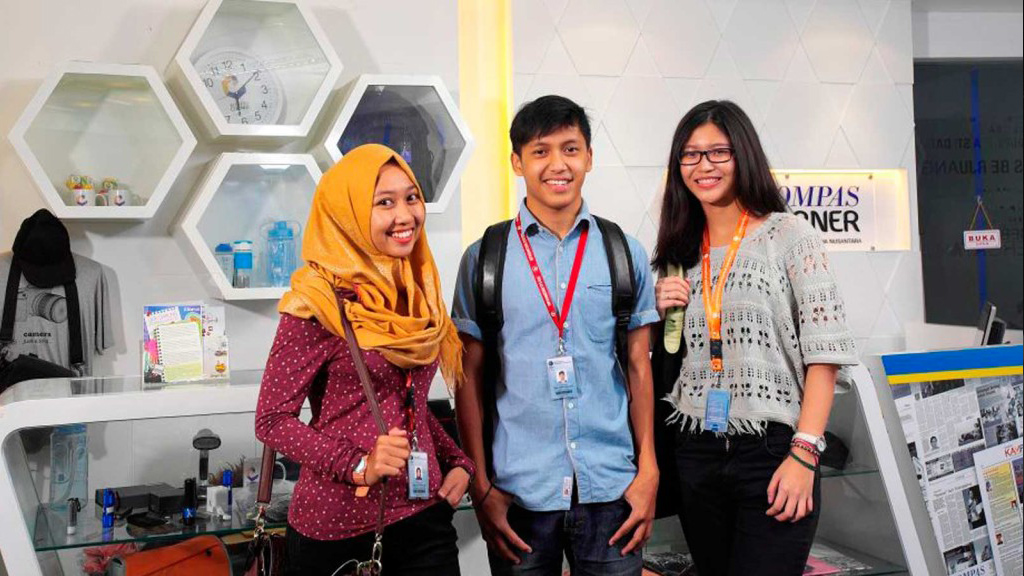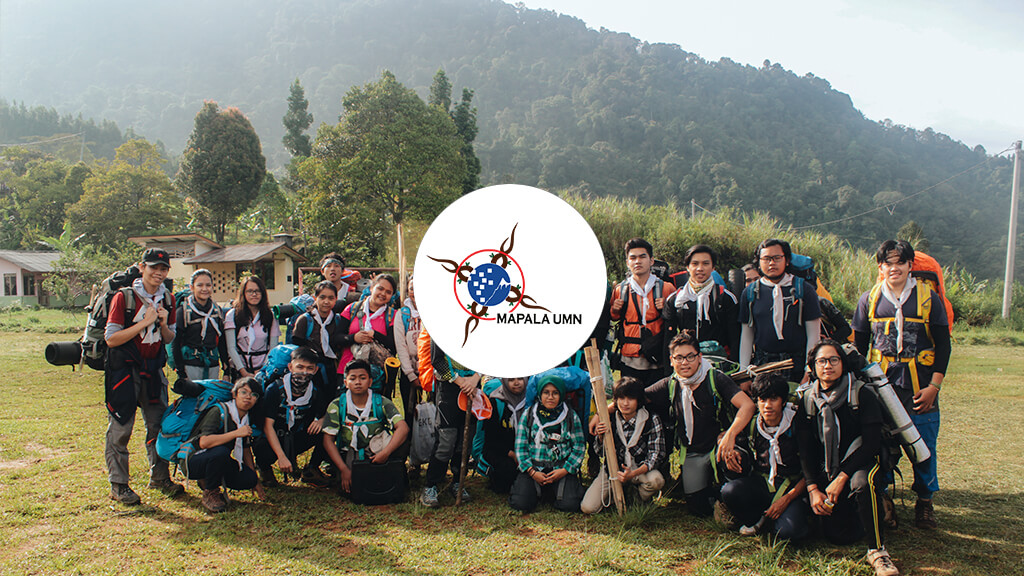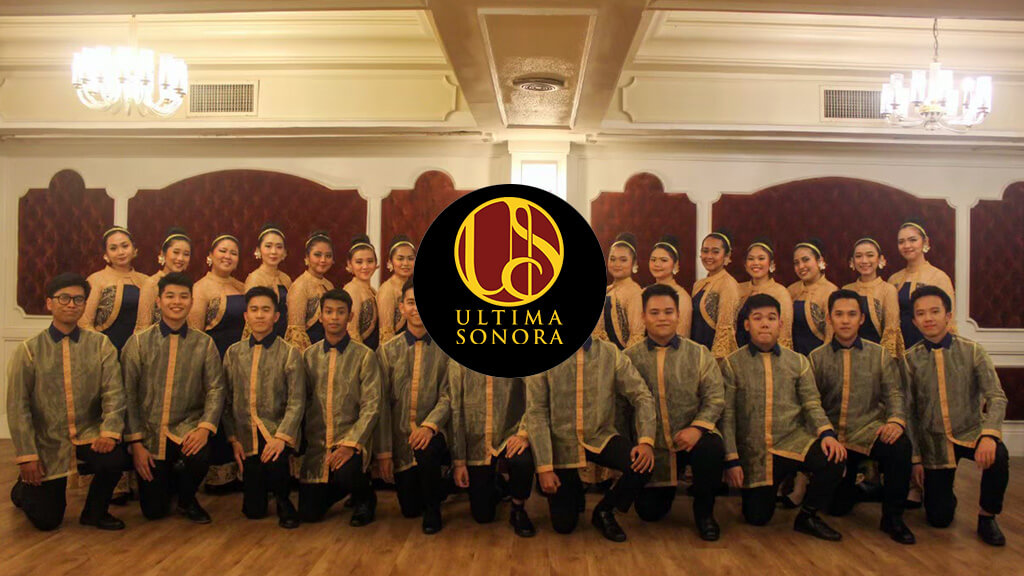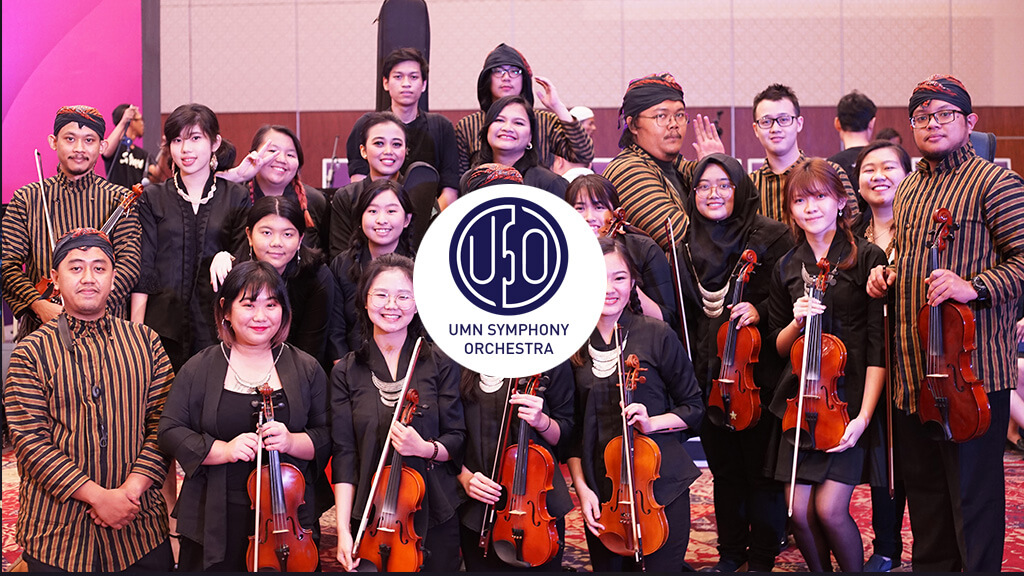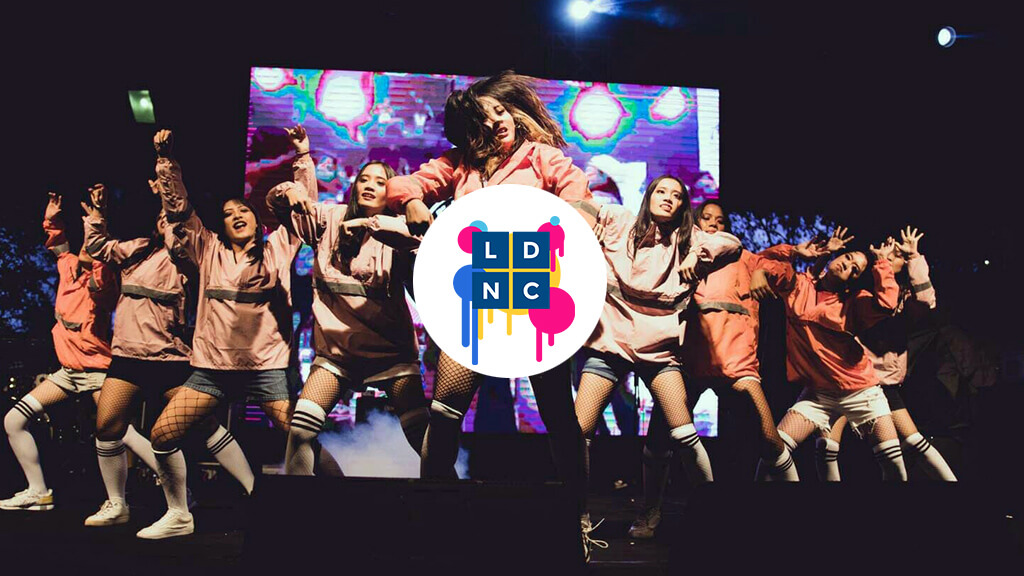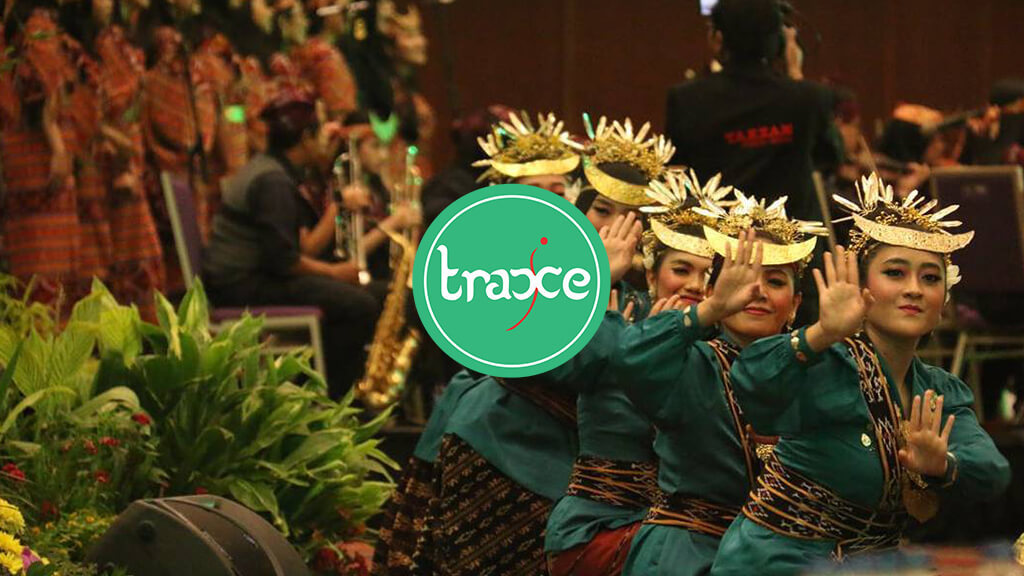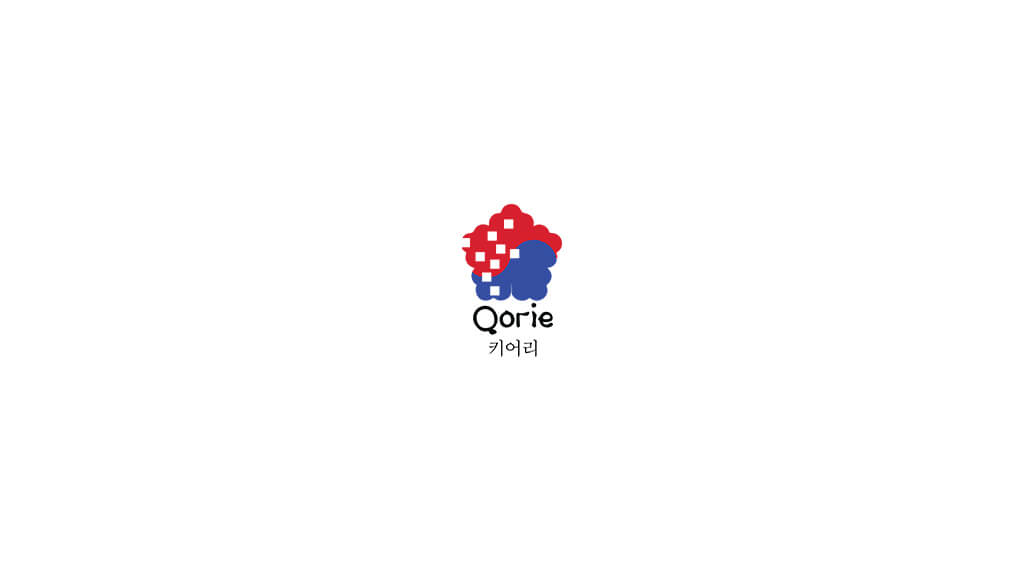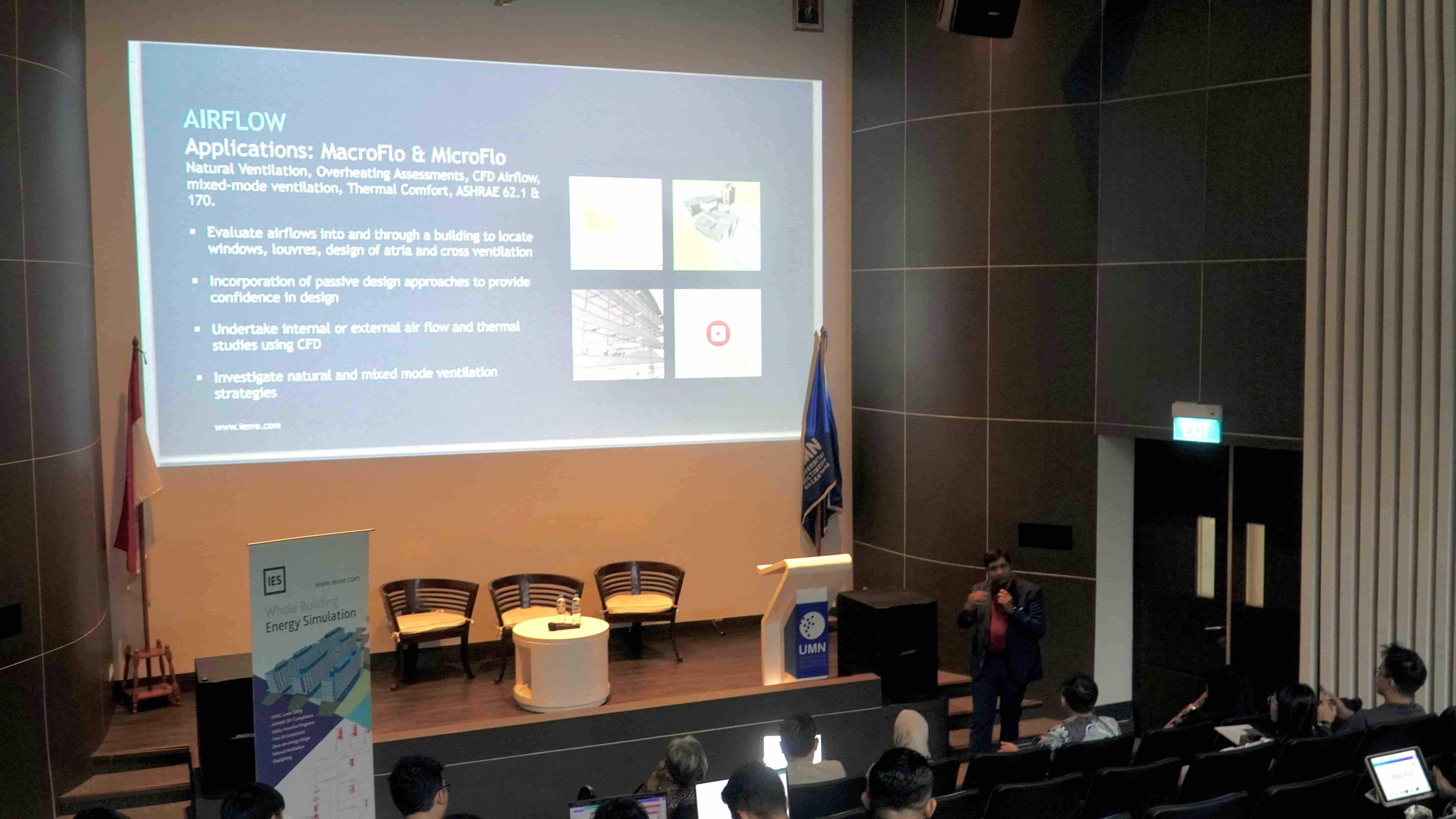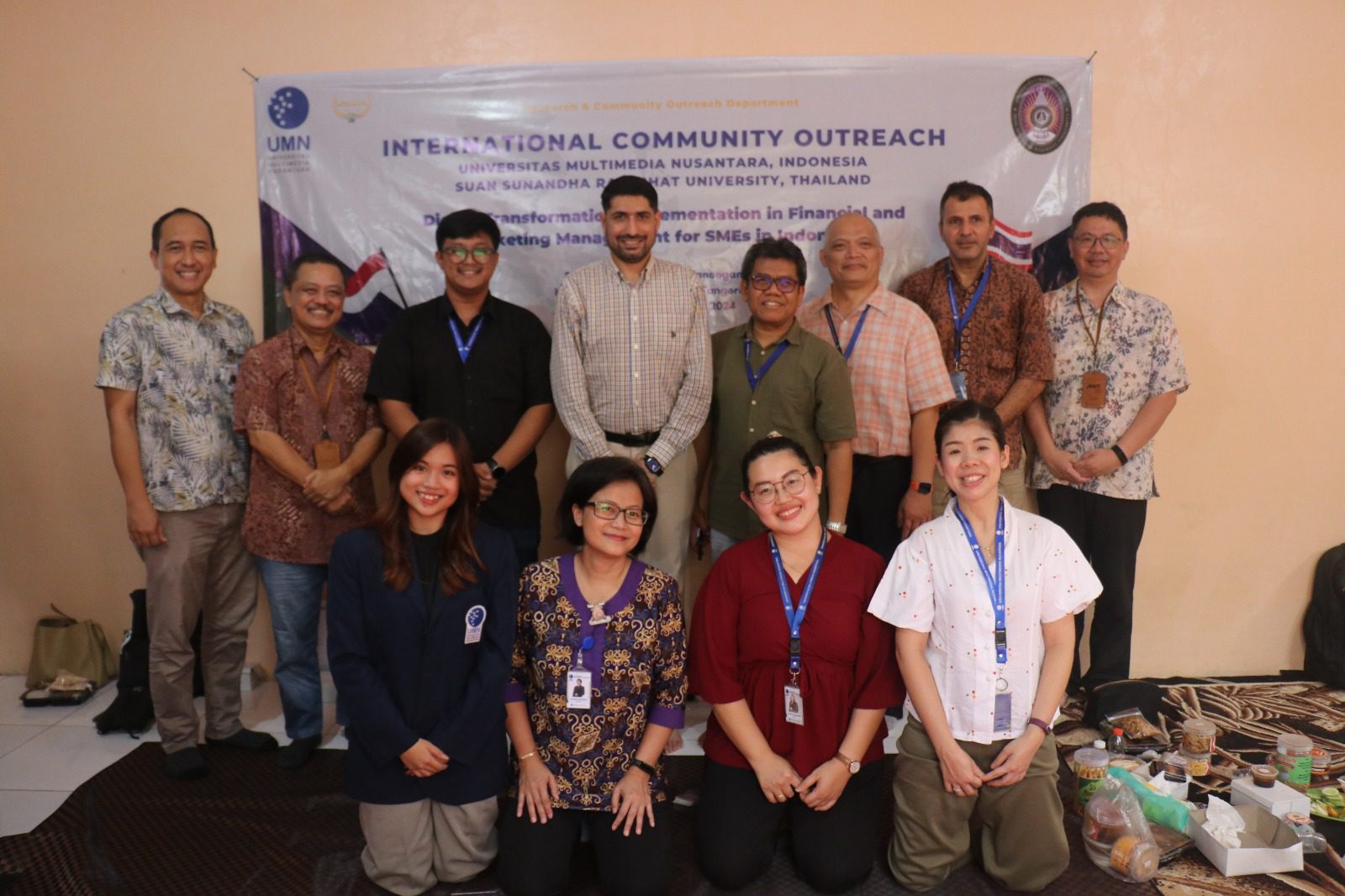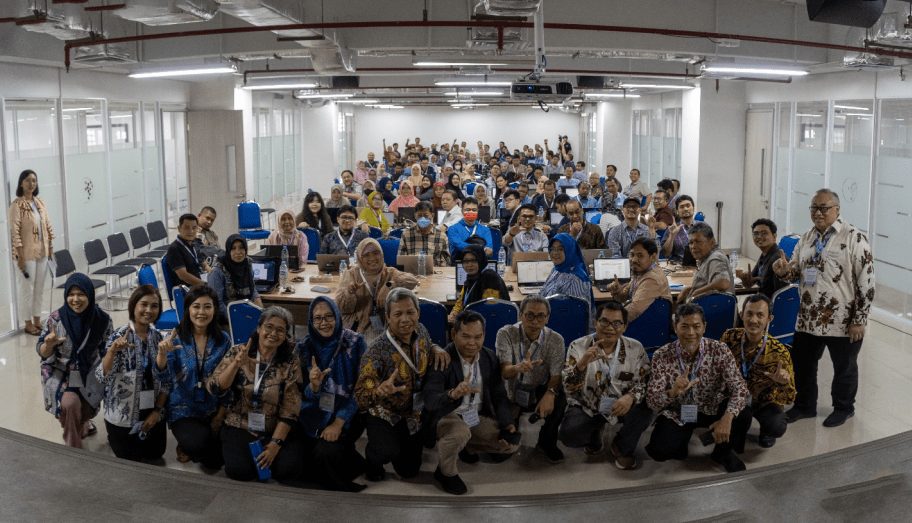Undergraduate Program in
Computer Engineering
What is Computer Engineering?
At the moment, mobile technology as the convergence of computer and communication technology (ICT) is growing rapidly. To support such technology development, especially in designing Computer Engineering, the Computer Engineering program is designed to produce the graduates who are able to develop mobile technology.
This program focuses on embedded systems as the main part of mobile devices. The program also prepares the students to be able to design and build computer networks and data communication both in a company and in a mobile format and also design variours digital-technology-based devices.

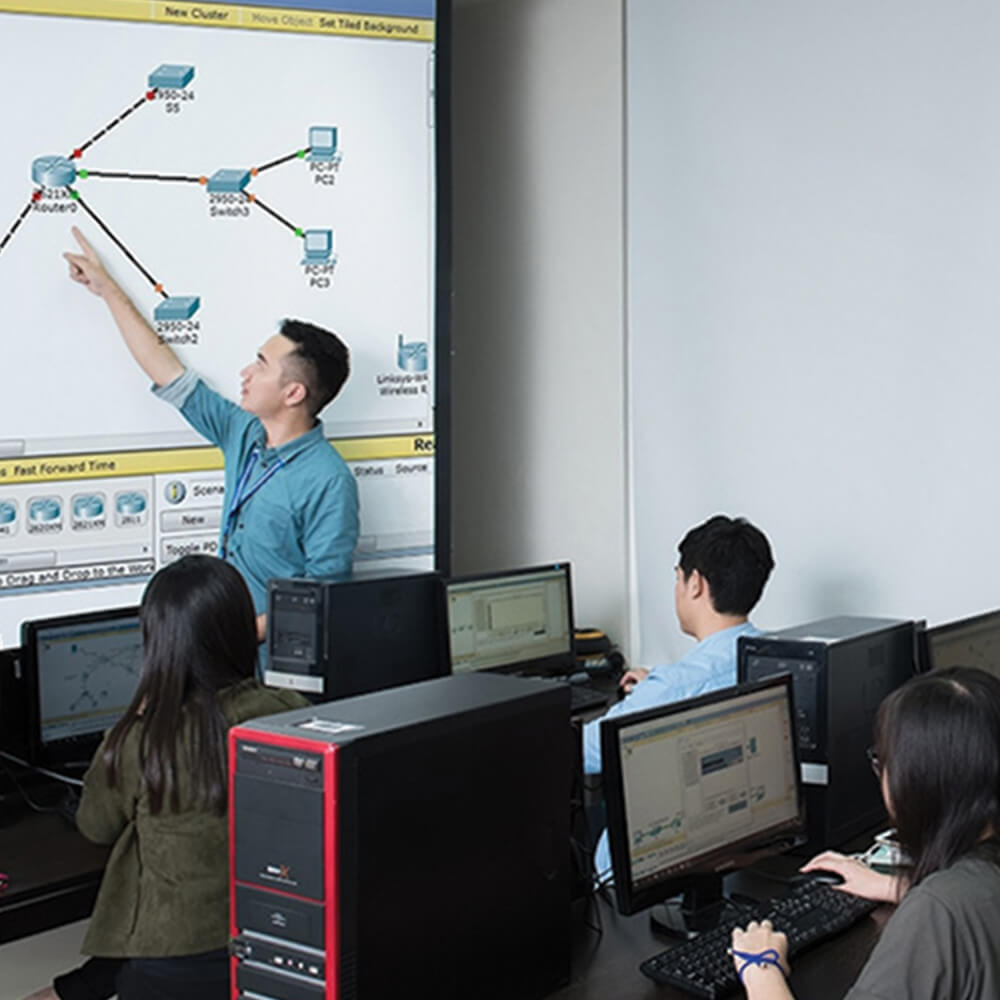
Spesialization in UMN Computer Engineering
- Advanced Database (ORACLE) with two options: Administrator or Developer
- Applied Computer Networking (CISCO)
- Company System and Application (SAP)
- Digital Game Development and Programming
- Certified Ethical Hacker (CEH)
- Internet of Things
- Mobile System Development
ECTS Points Table
| ECTS Points | 146 SKS |
| Education Type | Bachelor Program |
| Duration | 4 years |
| Language | Bahasa Indonesia |
| Bachelor's Degree | Bachelor of Engineering |
Vision & Mission
Vision
To become an outstanding undergraduate Computer Engineering program that produces international-minded graduates who are focus in mobile computing & communication and have entrepreneurial spirit and noble character.
Mission
- To conduct studies with the best technology and curriculum, supported by professional lecturer.
- To conduct research in Computer Systems to promote Science and supported the teaching process.
- To deliver useful society services in Computer Systems to develop industries, government and society.
Career Prospect
- Computer System Engineers/System Developers
- Network Engineers/Administrators
- Software/Hardware Engineers
- Embedded System Engineers
- System Analysts
- Interface Designers
- Research Assistants
- Scholars
- Technopreneurs.
Further Study
Curriculum
The students of Computer Engineering program will be equipped with deep knowledge about computing organizations and architectures, reminder organizations and architectures, Operating Systems (including Linux, Windows, and software basis that works in the operating systems), programming language, Algorithm, Hardware Implementation, Modular Programming in FPGA, Building Device Drivers, Web Development, Distributed Systems.
Entry Requirement
- High school graduate majoring in Science
- SMK graduates majoring in Computer Engineering, Information Engineering, Computer and Network Engineering.
Why Choose UMN’s Computer Engineering?
The Computer Engineering study programme at UMN focuses on equipping students with a wider knowledge of software, hardware, and network infrastructures This ability is crucial in allowing our students to have the necessary bird-eye’s view of any computer systems, to prepare them for the ‘system architect’ role. On the other hand, the students will also have the opportunities to work in a more diverse fields so that they can adapt to the needs of technology development.
In the software side, students will learn to program frontend & backend web applications, mobile applications, as well as programming in “various types” of computers. Students are also introduced to AI with focus on image processing. On the hardware side, students learn basic electronics and how to integrate them into a connected system of multiple computers, that includes both hardware and software. On the network infrastructure side, students will be equipped with skills and knowledge in cloud, server, network, and security.

ECTS Points Table
| ECTS Points | 146 SKS |
| Education Type | Bachelor Program |
| Duration | 4 years |
| Language | Bahasa Indonesia |
| Bachelor's Degree | Bachelor of Engineering |
Career Prospect
- Computer System Engineers/System Developers
- Network Engineers/Administrators
- Software/Hardware Engineers
- Embedded System Engineers
- System Analysts
- Interface Designers
- Research Assistants
- Scholars
- Technopreneurs.
Further Study
Scholarships
Universitas Multimedia Nusantara (UMN) provides scholarship for students with academic, sports and arts achievements in class XI. UMN also welcome high school/vocational school students who have attained medals in the National and International Science Olympics.
As a form of appreciation for the dedication of teachers and employees/staff in educating the nation's children, UMN provides scholarships in the form of reduced tuition fees amounting to 50% for children of teachers/principals and a 30% reduction in tuition fees for children of employees/staff at State/Private High School/Vocational Schools who wish to continue their education at UMN.
For more information click here.
Admission requirements
In general, the admission requirements for the Computer Engineering study programme at UMN are as follows.
Specific aspects | Requirements |
School origin |
|
Emphasised subjects in school report (for non-test channel) | Mathematics, English, Physics, IT or Entrepreneurship |
Written test subjects (for test channels) | Mathematics, English, Logics, Science |
The table below summarizes admission requirements for applicants with different qualifications of high school-equal education, as well as non-Indonesian citizen applicants.
Origin | Additional admission requirement |
National standard - Paket C Exam* | Admitted |
Homeschooling | Take the National standard - Paket C Exam |
Overseas high school | Take the National standard - Paket C Exam Other degree equalization process acknowledged by Ministry of Education |
International applicants | English proficiency, TOEFL (ITP) ≥ 500, or IELTS ≥ 5.5 |
* The policy regarding the Paket C Exam follows the Regulation of the Minister of Education, Culture, Research and Technology of the Republic of Indonesia Number 31 of 2023 concerning Equivalency Tests. Based on the Placement Test Guide, the equivalent subjects are:
- General Group, consisting of Religious Education, Citizenship Education, Indonesian Language, Mathematics, Indonesian History, and English.
- Specialties, may include:
- Mathematics and Natural Sciences, consisting of Mathematics, Biology, Physics and Chemistry
- Social Sciences, consisting of Geography, History, Sociology and Economics
- Language and Culture Sciences, consisting of Indonesian Language and Literature, English Language and Literature, other languages and literature (Arabic, Mandarin, Japanese, Korean, German, French), and Anthropology
- Special Group, consisting of Empowerment and Structured Functional Skills
Each student is assigned an academic advisor (which are also lecturer), and students are required to do at least 3 academic advisory sessions per semester. The academic advisory schedule is set up by appointment between the advisor and the student(s). Topics of discussion may include anything related to the student’s academics but is mainly about course planning.
P.s. Please refer to the academic handbook in MyUMN.
Students are encouraged to find their own company/agency that accepts internship work or utilize the network of companies maintained by UMN’s Career Development Center (CDC). The work should match the focus of the Computer Engineering study programme, which includes broader fields of software, hardware, and infrastructure. Information on internship job vacancies can also be obtained from other students, social media, job fairs, advertisements in print or electronic media.
Should the students find any internship opening, please consult the academic advisor (or the study programme) to ensure the job matches the study programme requirements.
P.s. Please refer to the internship guidebook in MyUMN.
To complete the Bachelor’s Degree (S-1) of Computer Engineering programme at Universitas Multimedia Nusantara, students are given one semester to work on a final project. Students must submit a final project proposal by the 2nd week of the semester. During the semester duration, students must present and defend a final project to the examining board.
Students work on the final project individually and is guided by one or two supervisors (lecturers). Assignment of supervisors are determined by the study programme, but students are allowed to request for specific supervisors if an agreement has been reached between the supervisors and the student beforehand.
P.s. Please refer to the final project guidebook in MyUMN.
No announcement.
Curriculum Structure
Our curriculum ensure that students are equipped with the core knowledge in computer engineering disciplines in semester 1-5, followed by a compulsory internship in the 6th semester. In the 7th semester, students are allowed to choose from various activities to further focus on studying certain areas. The offered activities are elective courses, student exchange, community outreach, research, entrepreneurship, independent project (competitions), or internship.
We structured our curriculum to enable students to complete the study and achieve the ELOs in 7-8 semesters (146 credit hours, equals to 245.28 ECTS).
| Sem | Credits / ECTS | Description |
| 1-2 | 38 credits / 63.84 ECTS | Mandatory (Basic science & computer subjects) Students take in-programme classes that establish their basic science & computer principles. Even mix between general subjects and basic science & computer. Students are also introduced to entrepreneurship. All subjects are theoretical except for one subject of programming basics. |
| 3-4 | 42 credits / 70.56 ECTS | Mandatory (Software & hardware subjects) Students learn a mix of software and hardware subjects, through theoretical and practical (guided by lab modules) courses. An even mix of subjects in software and hardware / embedded systems. |
| 5 | 20 credits / 33.60 ECTS | Mandatory (Computer Engineering core subjects) Students deepen their understanding of the programme’s main competencies through theoretical and project-based courses. Subjects focus on core competencies of embedded systems, infrastructure, and tech integration. Through project-based courses, students demonstrate both hard skills and problem-solving skills by developing technology-based solutions for certain problems. |
| 6 | 20 credits / 33.60 ECTS | Internship Students participate in a semester-long full-time internship to equip them with necessary experience of the professional world. The company and the job role applied to by the students is screened by the study programme. That is, the job role should require skills related to ELO G/H/I (our technical and applicative ELOs). |
| 7 | 20 credits / 33.60 ECTS | Elective (Courses / Mobility Programmes) The available activities are Research, Community Outreach, Internship, Entrepreneurship, Independent projects, and Student exchange. Students may also choose from externally organised activities. |
| 8 | 6 credits / 10.08 ECTS | Final project Students work on a final project to demonstrate their understanding of basic principles, computer technology, and research. |
Curriculum Roadmap
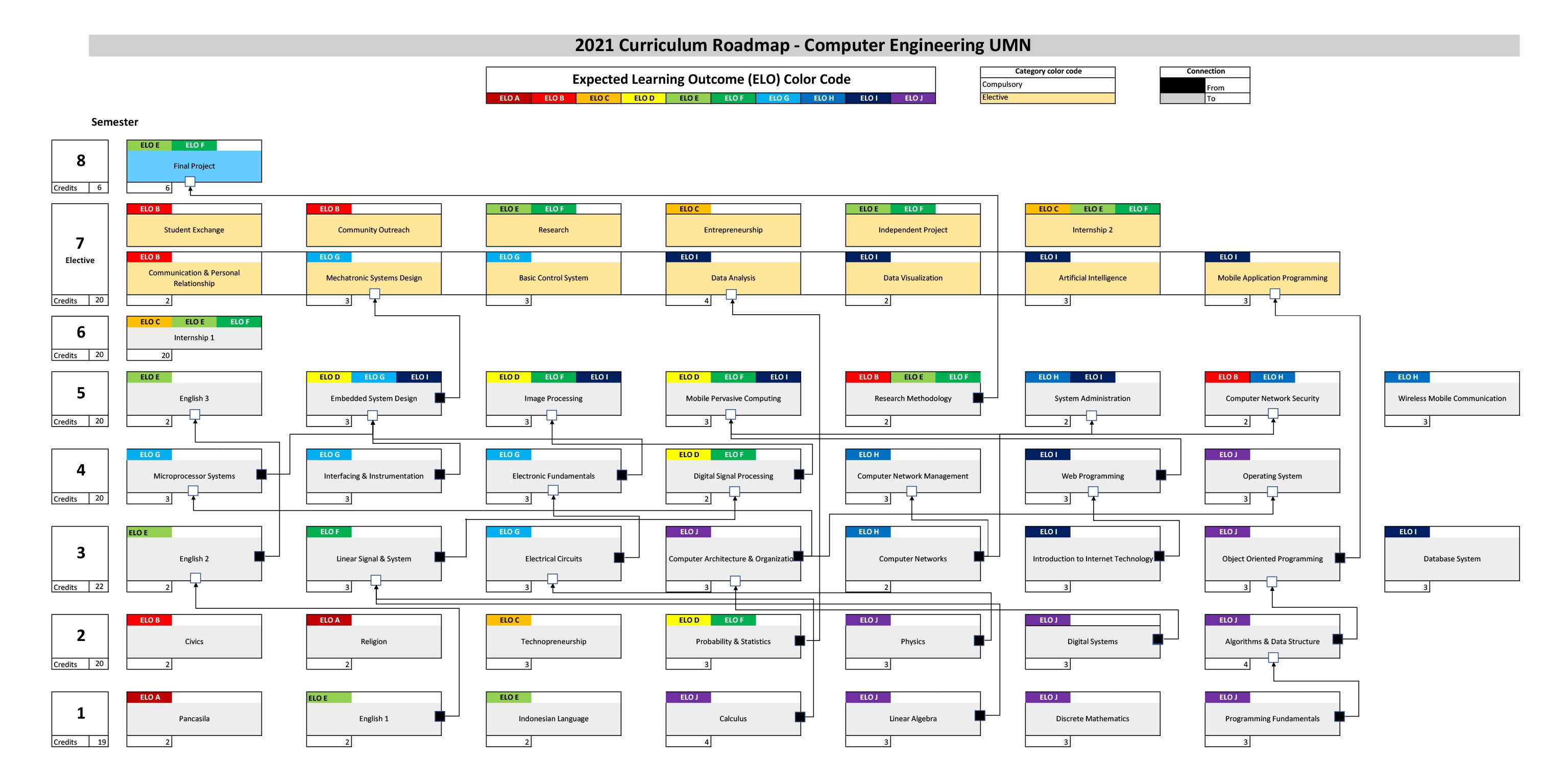
Course Lists
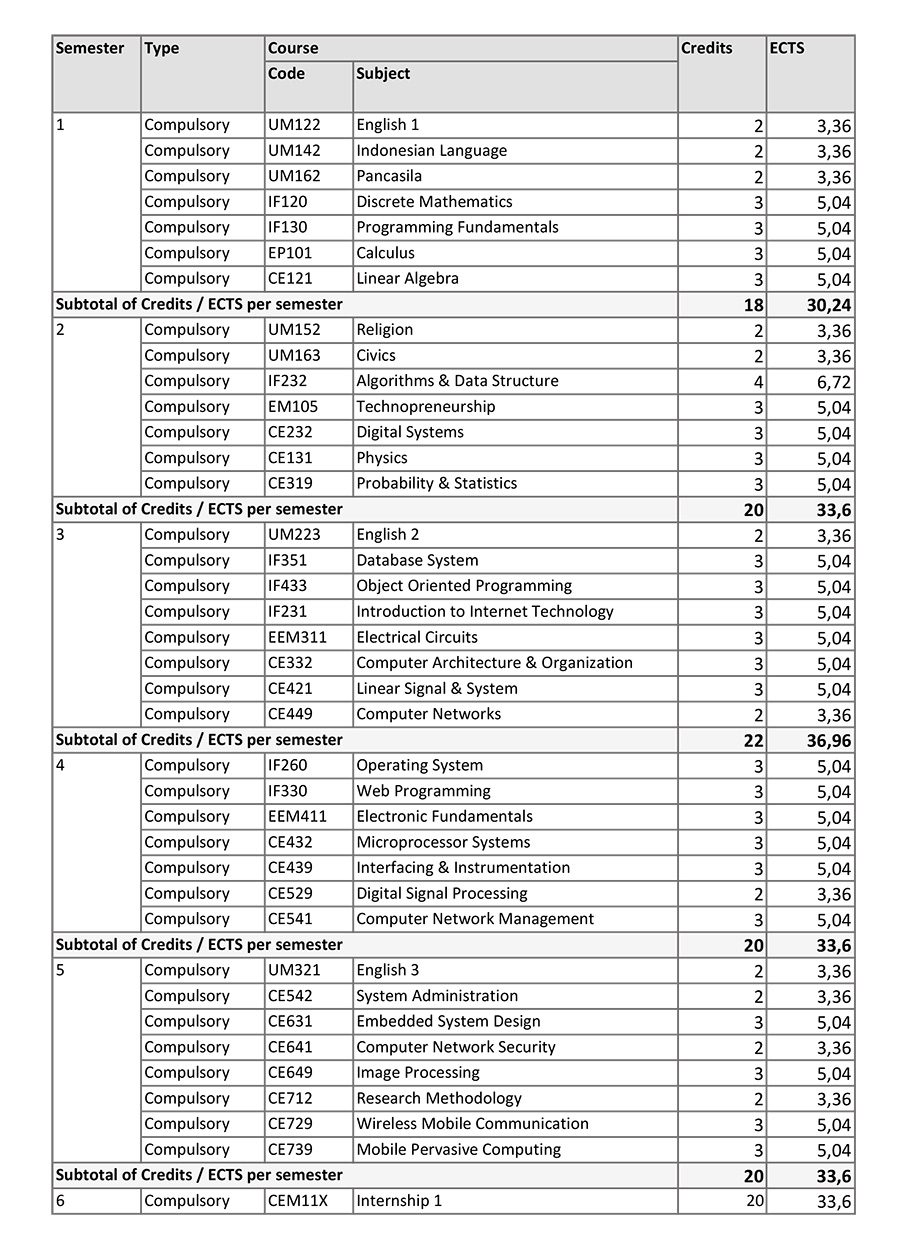
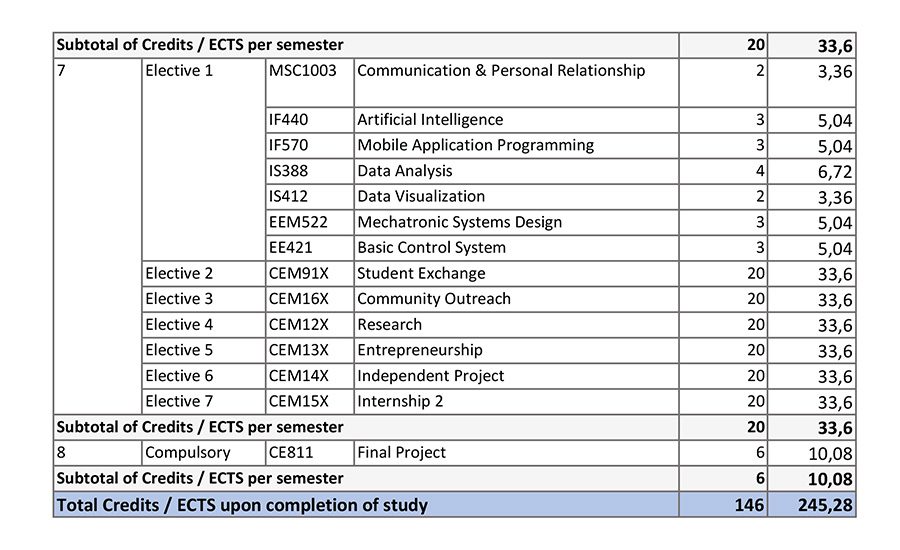
To support the learning process, umn provided a complete and sophisticated college facility, according to industrial standards. Through the existence of the facility, students have been invited to be close to the industrial world since sitting in college and to have competence that matches the needs of the industry. That way, it will make it easier for umn students to find jobs, even before graduation.
Extracurricular Student Activities
In order to help students explore and develop their non-academic potentials, UMN also provides a variety of extra-curricular activities for students which is locally called UKM, Student Activity Unit.

SEE OTHER
UMN’S STUDENT ACTIVITIES
Penelitian Hibah DIKTI - TK
Rekapitulasi Hak Cipta Teknik Komputer
Daftar Kegiatan PKM Dosen
Rekapitulasi Inovasi Hak Cipta - Teknik Komputer
CERTIFICATION
Continuing Education Department (CED)
Continuing Education Department (CED) adalah program pengembangan pendidikan di Universitas Multimedia Nusantara (UMN) yang merupakan bagian dari Grup Kompas Gramedia. Kami memiliki berbagai program dalam kursus bahasa, pengembangan manusia, Pusat Pengujian untuk sertifikasi nasional dan internasional, dan program pelatihan. CED UMN dirancang untuk memenuhi kebutuhan siswa sekolah menengah dan perguruan tinggi, serta masyarakat dan profesional.
Information Literacy
Information literacy is an ability that individuals have in determining, searching, managing and evaluating information effectively and efficiently. This training is open to UMN active students. For further information, please contact: library.umn.ac.id
During my studies at UMN, I gained a strong foundation of knowledge and fundamental concepts essential for future developments in the field of technology that is applied in the field of work. Moreover, the opportunity to work on real-life projects helped me develop critical thinking when solving a problem.
Dicky Hartono
Computer Engineering UMN, batch 2007 Digital Design and Verification Engineer at Miuren Semiconductor, Shanghai – China
Computer Engineering
“Industry 4.0 demands collaboration from various fields of science. Students must be equipped with broad technological skills such as Software, Hardware, and IT Infrastructure. The Computer Engineering Study Program collaborates the skills of the three technologies so that students are ready to contribute in the industrial and business world.”
Samuel, M.T.I., Head of Computer Engineering Study Program

